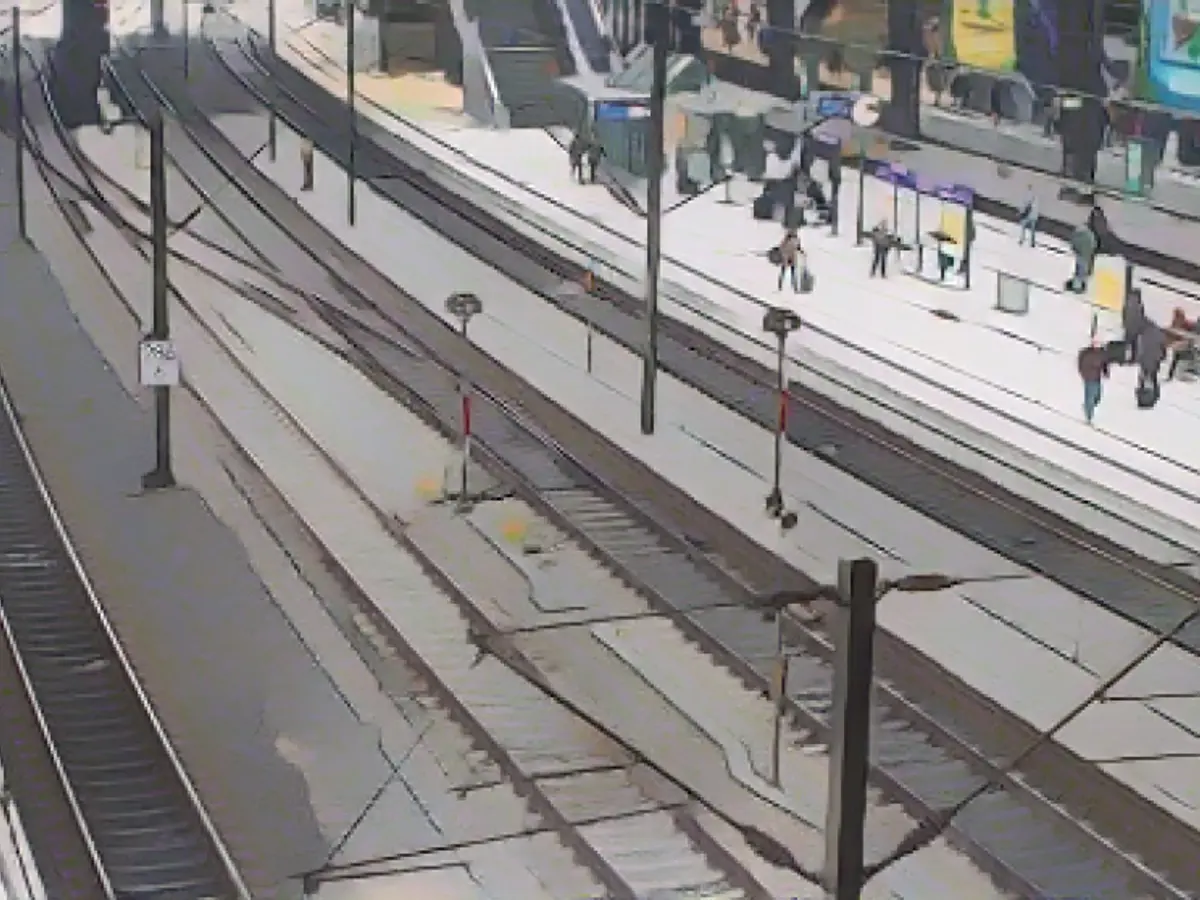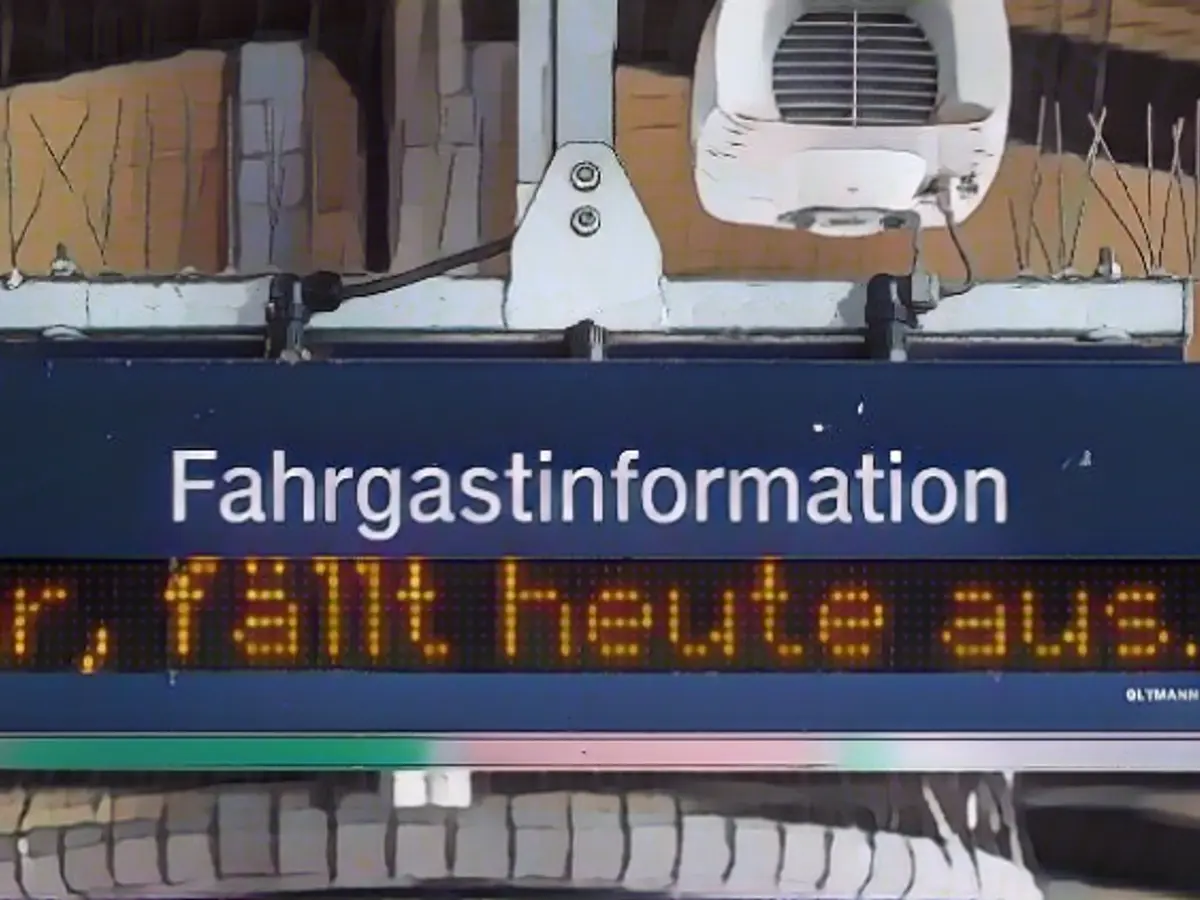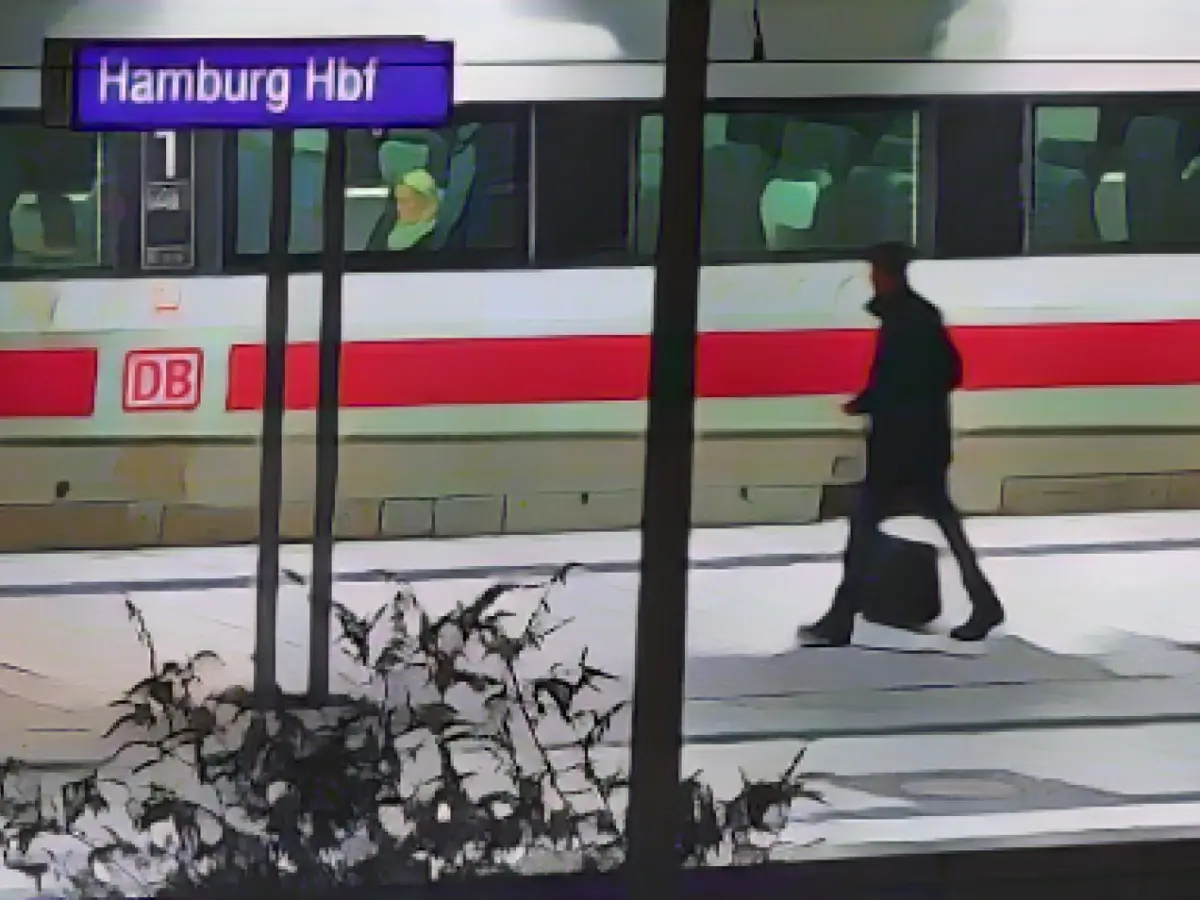Unforeseen Travel Woes Loom as Germany's Rail Workers Stage Massive Strike
Tension and travel woes are set to engulf German rail passengers right before the festive season. The cause? A hefty 24-hour rail workers' strike, spearheaded by the German Train Drivers' Union (GDL). Stretching from 10 pm on December 7th, this collective action looks to put a halt to train services. For commuters and sightseers, it's a time to steel their nerves and brace for potential turmoil.
24-hour Work Action
Prepare to pack your patience as the clock ticks 10 pm this Thursday. Deutsche Bahn's train services across the German landscape will bear the brunt of the 24-hour strike. Freight transport's misery started from 6 pm that same day, adding to the looming chaos.
Snowy Chaos and Strike Muddle
No sooner had record snowfall paralyzed rail traffic around Munich than Deutsche Bahn's passengers had to brace for more adversity. Strike warnings arrive just in time to further hinder the decent into icy chaos. As the first long-distance connections begin to disappear from the list, rail operators are racing against time to keep stranded travelers from spending their nights on the rails.
Wage Disagreements and Demands
As the strike simmers, tension builds in the background surrounding a broken-down wage negotiation. The GDL demands compromise on reducing working hours for shift workers from 38 to 35 hours, with full compensation. Although Deutsche Bahn has so far rejected this request, the union has not budged from its intentions.
The union seeks a secondary wage increase of an additional 555 euros each month and an inflation adjustment bonus. Deutsche Bahn proposes a 32-month salary increase of 11% with a catch-up bonus instead.
Timetable Changes and Strikes
Christmas truce is on the cards as the union deems this strike the last of 2023. However, the peaceful sentiment won't last until January 7th. Intriguingly, GDL chief Claus Weselsky hints that 2024 will see strikes that are "longer and more intense."
The Impact on Freight Services
The seemingly never-ending stalemate will impact freight transport heavily. Gunfire echoes as dozens of freight wagons stand still in Hagen, NRW, only adding to the chaos.
The Strike's Timing
Alarmingly, this hit begins just before a timetable change promises new long-distance and regional connections, along with an expanded train fleet. Deutsche Bahn personnel director Martin Seiler criticizes the union's move as "irresponsible and selfish," undermining the holiday spirit for millions caught in the turmoil.
ADAC's Advice: Home Office if Possible
At the helm of the oncoming maelstrom, Deutsche Bahn sets up a free hotline (08000 99 66 33) devoted to providing solace to stranded passengers.
While fighting the weather chaos, the GDL also staged a warning strike on November 15th and 16th.
The Digital Footprint
The fiery debates about the strike fiercely grip the German-speaking nations, with the railroad's daunting challenges sparking concern among the public. GDL union leader, Claus Weselsky, pleads for employers' attention to their employees' demands to revive the railway sector, highlighting its leading role in climate-friendly transportation.
Wrap-up
Gripped by the rough duality of unyielding weather and wage disputes, German rail travelers learn the bitter taste of disruption and the indomitability of human will. The looming strike is not a joyous prelude to the Yuletide season, but a grim reminder of our shared tenacity in facing adversity, and the never-ending dance of discord in the labor sphere.
Enrichment
The 24-hour train driver strike, orchestrated by the German Train Drivers' Union (GDL), is a labor dispute focused on a myriad of grievances pertaining to wages, working hours, safety, and job security. Here is a brief overview of its expected impacts on travelers and employees:
- Travel Disruptions:
- Service Cancellations: The strike is poised to result in service cancellations of regional and long-distance trains, resulting in significant transportation disruptions across Germany.
- Alternative Options: Alternatives such as taxi service, car-sharing, and other public transit methods may emerge as viable solutions for travelers looking to navigate the railway system's stumbling blocks.
- Punctuality: Travelers are generally responsible for arriving at their destinations on time, even during strikes. Employers are not obliged to accommodate tardiness or absences, therefore commuting by taxi could turn into employees' own expense.
- Regional Variations:
- Exemptions might be granted to certain areas, such as Westbahn between Vienna and Munich, ensuring minimal disruption for those regions.
- Employer Responsibilities:
- Employers are not legally bound to accommodate late employees due to strikes unless it constitutes an unavoidable circumstance. Working from home might be a viable option if remote work is a common practice, but no prevailing legal precedent exists for employers to cater to employee requests during labor disputes.
The strike serves as a stark reminder of the challenges faced by the railroad sector and the indirect consequences for travelers and employees alike.








